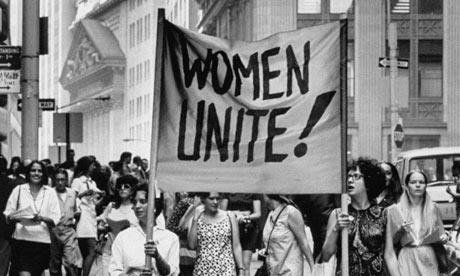Socialist Feminism: Class Struggle and Gender Equality – Socialist feminism, a dynamic feminist theory, merges elements of socialist theory with the analysis of gender oppression. Emerging in the 1960s and 1970s, it recognizes the interconnectedness of capitalism, patriarchy, and women’s oppression. Socialist feminism aims to address the dual challenges faced by women in relation to both economic exploitation and gender inequality.
Defining Socialist Feminism
In short, socialist feminism seeks to address the inequalities rooted in both class and gender. It identifies the economic structures of capitalism as central to women’s subjugation and advocates for the restructuring of society to ensure justice for all. situs slot
Approaches within Socialist Feminism
- Materialist Approach: This approach delves into the material conditions that shape women’s experiences, focusing on how capitalism exploits their labor while maintaining traditional gender roles. hari88

- Intersectional Analysis: Socialist feminism acknowledges the intersectionality of oppressions based on class, gender, race, and other factors. It recognizes that different women experience various forms of discrimination.
- Collective Action: Collective action is a central tenet of socialist feminism. It encourages women to come together to challenge systemic injustices and advocate for economic and social reforms.
Differentiating Socialist and Marxist Feminism
While both socialist and Marxist feminism emphasize the relationship between capitalism and gender oppression, they differ in their scope and emphasis. Marxist feminism centers primarily on class struggle and how capitalism exploits both labor and gender. In contrast, socialist feminism places greater emphasis on integrating the experiences of women from different social classes and recognizing the interplay of various forms of oppression.
Conclusion
In conclusion, socialist feminism offers a unique perspective that seeks to bridge the realms of class struggle and gender equality. By analyzing how capitalism and patriarchy intersect to perpetuate women’s subjugation, socialist feminists advocate for societal change that addresses both economic disparities and gender-based injustices.
Through a materialist lens, this theory explores the economic underpinnings of women’s oppression and calls for the redistribution of resources to achieve gender liberation. The intersectional approach of socialist feminism ensures that the experiences of women from diverse backgrounds are recognized and integrated into the broader struggle for social transformation.
While closely related to Marxist feminism, socialist feminism expands its focus beyond class struggle to encompass a broader range of oppressions. It recognizes that various forms of inequality, including those related to race and gender, intersect and compound one another. By acknowledging these intersections, socialist feminism contributes to a more comprehensive understanding of women’s experiences and challenges.
In summary, socialist feminism stands as a testament to the ongoing quest for gender equality and social justice. By uniting the insights of socialist theory and feminist analysis, this theory advocates for a world in which women are not only free from economic exploitation but also liberated from the constraints of traditional gender roles. Through collective action and a commitment to intersectionality, socialist feminism offers a vision of a more inclusive and equitable society for all.